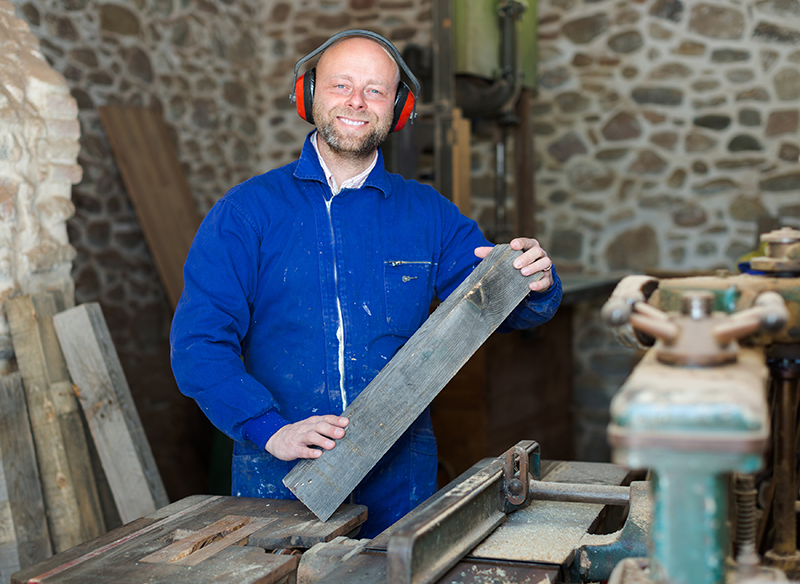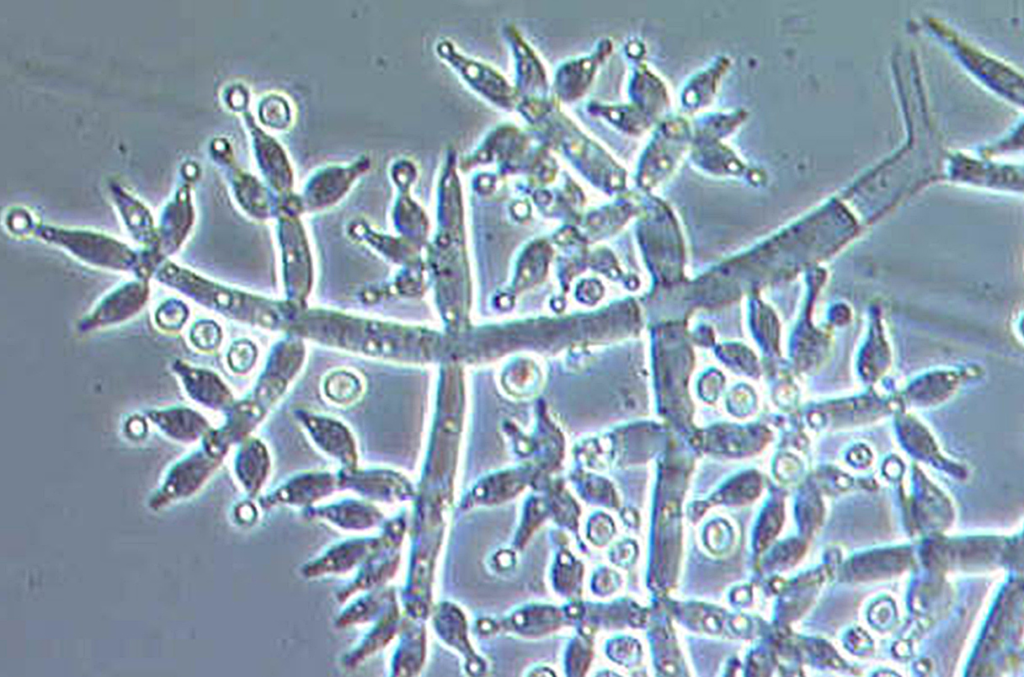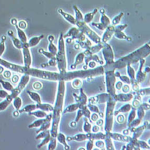Want to work for an oil company or a shipping company? Try a career in maritime law.
The post How To Become A Maritime Lawyer & What Do They Do? appeared first on Green Prophet.
When exposed to static for 30 minutes daily, the fungal soil microbe Trichoderma harzianum, pictured here, grew more massive and produced more spores than microbes kept in silence.U.S. Department of Agriculture/Agricultural Research Service/Systematic Botany and Mycology Laboratory via Wikimedia Commons
Medical marijuana growers swear by it: that music from different styles enhances the growth of their plants. This is the reason why parents in the 80s played Mozart to their embryos.
There may be something to it:
Soil microbes enjoy bouts of white noise finds scientists in a new research project. Fungal soil microbes that promote plant growth seem to get a boost from white noise. Researchers say it’s like hosting an underground rave.
Members of the the Flinders ecoacoustics team listening to soil (left to right): Dr Jake Robinson, Associate Professor Martin Breed, Nicole Fickling, Amy Annells and Alex Taylor. Photo and animation by Traci Klarenbeek (Flinders University).
When scientists periodically played a noise similar to radio static to Trichoderma harzianum, the fungi grew bigger and produced more spores than other samples grown in a soundproof booth. The vibrations might stimulate mechanoreceptors in Trichoderma’s cell walls, which alters the expression of genes involved in growth, suggest researchers.
Barely audible to human ears, healthy soils produce a cacophony of sounds in many forms – a bit like an underground rave concert of bubbles and clicks.
Special recordings made by Flinders University ecologists in Australia show this chaotic mixture of soundscapes can be a measure of the diversity of tiny living animals in the soil, which create sounds as they move and interact with their environment.
With 75% of the world’s soils degraded, the future of the teeming community of living species that live underground face a dire future without restoration, says microbial ecologist Dr Jake Robinson, from the Frontiers of Restoration Ecology Lab in the College of Science and Engineering at Flinders University.
This new field of research aims to investigate the vast, teeming hidden ecosystems where almost 60% of the Earth’s species live, he says.
“Restoring and monitoring soil biodiversity has never been more important.
“Although still in its early stages, ‘eco-acoustics’ is emerging as a promising tool to detect and monitor soil biodiversity and has now been used in Australian bushland and other ecosystems in the UK.
“The acoustic complexity and diversity are significantly higher in revegetated and remnant plots than in cleared plots, both in-situ and in sound attenuation chambers.
“The acoustic complexity and diversity are also significantly associated with soil invertebrate abundance and richness.”
Over in Israel this team was the first to show that plants can speak.
The post Play your cannabis plants some white noise? appeared first on Green Prophet.
Recommended Story For You :

Bringing Dead Batteries Back To Life Is Simple!

SEPTIFIX to the Rescue! Say Goodbye to Problems and Hello to Savings

Ecomposing of Paper Towels Produce Methane Gas

A Leading Cause Of Global Warming!

A cleaner world where energy is abundant essentially free

and sourced directly out of the inherent power of the space surrounding us.

MIT Discovery can cut power bills by 65%

Easy DIY Power Plan Will Change Our World Forever

Discover the World with Our Passionate Geography Teacher in Memphis!




